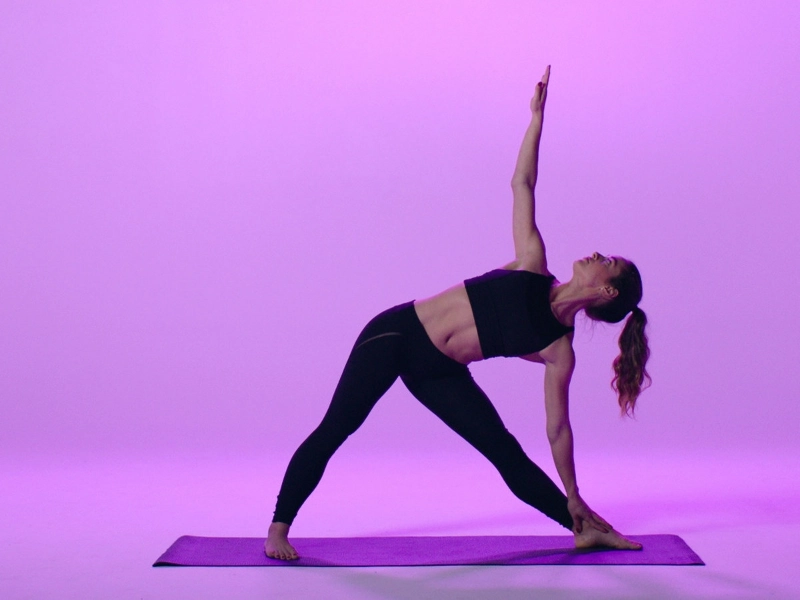The Health Benefits Of Yoga For The Mind And Body
Yoga helps people reduce anxiety and relax their nervous systems by teaching them to slow down their breathing and concentrate on the here and now. Additionally, yoga promotes deep relaxation, which lowers blood pressure and improves sleep.
Yoga poses strengthen muscles and increase flexibility. Furthermore, breathing exercises used in yoga can lessen respiratory issues like asthma.
Reduction of Stress

Meditation and the relaxing breath techniques of yoga help to calm the mind's oscillations. This lessens the tension, worry, and annoyance that can cause headaches, insomnia, elevated blood pressure, and other long-term health issues.
In response to stress, our autonomic nervous system tightens our muscles, quickens our respiration and heartbeat, and releases chemicals like cortisol that cause organ and tissue inflammation. Yoga encourages a more balanced utilization of the parasympathetic and sympathetic branches of the nervous system, which helps you learn to modulate the strength of your response to stress.
Some people find that practicing yoga on a regular basis lessens their need for talk therapy and pharmaceuticals. Chair and yin yoga poses, for example, may be beneficial for people with physical limitations.
Better quality sleep

Research indicates that yoga can enhance the quantity and quality of sleep. People with chronic illnesses including fibromyalgia, MS, cancer, and diabetes may find that yoga helps avoid sleeplessness and reduces the frequency of nighttime wake-up calls.
Select calming or restorative yoga poses over hatha and vinyasa poses, which can raise the heart rate, for a better night's sleep. Poses like Legs Up the Wall, Standing Forward Bend, and Wide-Kneed Child's Pose are good choices.
Yoga also helps sleep by reducing cortisol levels, which are naturally high during stressful situations. Elevated cortisol has been associated with cognitive impairment, osteoporosis (a condition where calcium is lost from the bones), and hypertension. Because yoga lowers cortisol, it helps strengthen the immune system and lessen the symptoms of several mental health conditions.
Greater Adaptability

Yoga helps to improve posture and build flexibility. Additionally, it can assist with long-term medical issues like fibromyalgia, arthritis, and back pain. Yoga has the potential to improve blood flow and lessen soft tissue and joint inflammation.
In contrast to other physical activities that may trigger a stress reaction in the body, yoga promotes deliberate slowing down and deep breathing. This can reduce tension and anxiety and help to quiet the mind.
A series of poses and breathing exercises that are intended to increase flexibility are practiced by many yogis. You can work out on your own or in courses using these workouts. The right approach for your unique needs can be determined with the assistance of a yoga instructor. By using the right techniques, you can reduce the risk of injury and improve the efficiency of your practice.
Enhanced Power

Breathing techniques and yoga poses increase blood circulation, increasing oxygenated blood levels and eliminating toxins. Yoga also includes purifying methods like jala neti, which is a mild salinization of the nasal passages with salt water that clears the lymphatic system and eliminates toxins from the body.
Regular yoga practice helps build stronger bones, thereby reducing the risk of osteoporosis. Weight-bearing postures like backbends and forward bends also contribute to the strength of bones.
Yoga can also help you feel better mentally by promoting a sense of peace and well-being. This could be due to a number of things, such as elevated blood flow, a better mood, and the practice of mindfulness through postures and breathing exercises. Healing is fundamentally based on the mind-body link; the state of your mind affects how quickly you recover from disease.
Enhanced Self-Recognition

Yoga invites you to become aware of who you are. It assists you in identifying unconsciously held habits, such as clenching your jaw when staring at a screen or holding the phone or steering wheel with an almost deadly force. Yoga also helps you to release tension from your larger muscles, which include your shoulders and neck.
Regular yoga practice stimulates the left prefrontal cortex, a part of the brain linked to the immune system and depression. Furthermore, a recent study discovered that engaging in 150 minutes of weekly yoga practice improves the quality of life for those who suffer from chronic illnesses, including multiple sclerosis and rheumatoid arthritis.
Your ability to live with awareness, developed by yoga, empowers you to act compassionately and with composure. It also teaches you how to stop being a victim of the events and experiences of the past.








